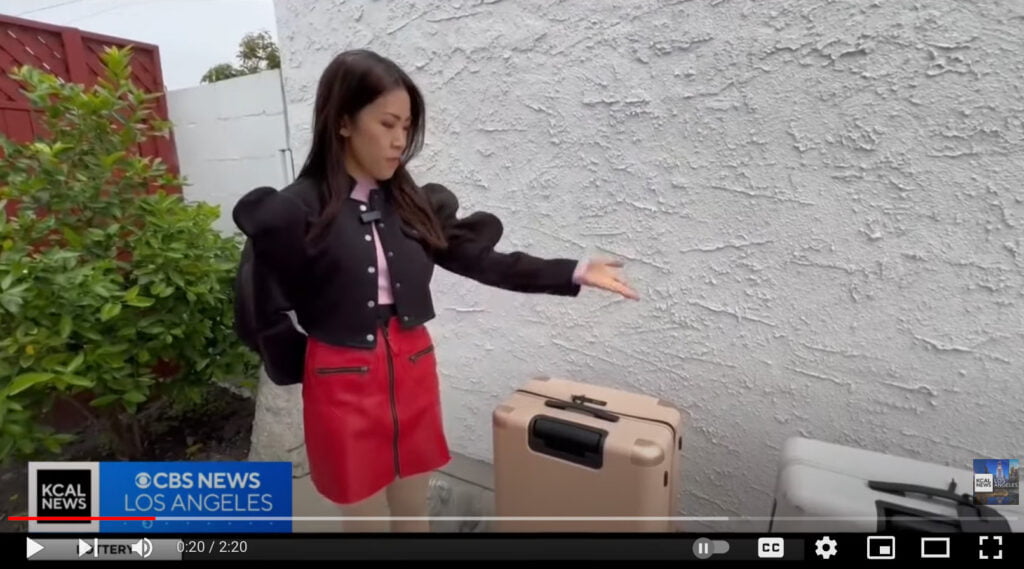“You are have such great experience. I’m sure if this doesn’t work out, you can always go back to the corporate world.”
An acquaintance said to me once after I started my entrepreneurship journey.
They meant well, and it is true — I could always go back. The corporate world is always there as my “Plan B”.
But I won’t.
Looking back at how I made life decisions, I realized I have never had a “Plan B”.
It may seem irrational, irresponsible or even privileged to say that, but I recognized that this is the mindset that could make or break an entrepreneurship journey.
In pursuit of my “American Dream”, I dropped out of high school with no “Plan B”
I was born and raised in China.
As a kid, I was curious, observant and more so than anything else, defiant. I questioned authorities. I never just believed everything adults told me. I liked to think for myself.
As a result, none of the government propaganda got through to me. I started reading widely and got exposed to different cultures as I was growing up.
When I was in middle school, I had the idea of moving abroad to study. The only problem was, I was a kid with no money. I needed my parents to support me.
We are a middle class family with limited financial resources. Studying abroad costs tens of thousands that my parents simply did not have (and still don’t have).
They said, we can’t support you, but if you find your own way, feel free.
One day, my mother saw a newspaper article about a local high school girl who got accepted to a dozen American universities with full scholarships. She suggested that I do try to the same.
Challenge accepted, I thought to myself.
My desire to achieve the goal of studying abroad was greater than my fear of it not working out. So I dived in.
I cut my lunch hours. I stayed up late. I even used a flashlight to keep studying under the blankets secretly in my boarding school dorm (that is not for rich kids) after the lights went out at 10:40pm.
While other students were busy preparing for our national college entrance exam (“gaokao” in Chinese) famous for its brutal competitions, I completely ditched that part of my study and focused on the SAT instead.
I read plenty of articles online about how we must be prepared for both in case our student visa gets denied, which were quite common back then, but I never did.
I only focused on applying to universities abroad. I did everything I could to make sure I present myself well in the application. I didn’t beat myself up for getting a less-than-ideal score in the SAT.
I had no “Plan B” if I didn’t get admitted to any universities abroad and also fail China’s college entrance exam.
I simply thought — I will figure something out if it happens.
And more importantly, I will try again and again until it happens.
Luckily, it did happen for me.
I got accepted to a couple of schools in America and received a full-scholarship from one of them.
My life changed and the rest is history.
I often think back and ask myself — Had I spent time thinking about “Plan B”, would I still have achieved the same result?
The crazier part of this story is — I actually applied to college early. By the time I was accepted, I wasn’t even half way through high school yet.
That’s when I dropped out — I bid farewell to my friends and spent the rest of the six months before college at home learning languages and playing music.
Most of my peers who also went on the study abroad route completed their high school courses and some even took the Chinese college entrance exam, just in case their visa didn’t work out.
I didn’t. I never thought about what would happen if my visa was denied. I simply thought — there is always a way to make it work so I trusted the process.
Then, I moved out of college early to live in New York City with no “Plan B”
When I got to the final year of college in Philadelphia, my mind started to drift.
By that time, I had been living in Philadelphia and focusing on my study for three years. My university was great — small class size, nice professors and beautiful campus.
But I wasn’t feeling fulfilled in Philadelphia. It’s a famous city, but not quite where I wanted to be.
It lacked diversity and great international food. It wasn’t the safest place to live.
On my first trip to New York City a few years back as a freshman in college, I was hooked.
I felt excited about the many different faces I saw everywhere on the streets. I loved hearing different languages being spoken. I totally blended in instead of sticking out like a sore thumb in Pennsylvania.
Before I registered for classes in senior year, I came up with a crazy idea — I wanted to move to NYC before graduation. I simply could not wait any longer to be in a city I love.
In typical me fashion, I hatched together a plan.
I identified courses that I could take online (yes, online learning was a thing back then already) that would fulfill my credit requirements.
It was not easy, but upon identifying those courses, I applied for administrative approval.
I had to have meetings with a dozen professors, deans and chancellors in different departments explaining my situation and made a case on why I needed to move.
Meanwhile, I also applied for numerous internships in NYC so that I could support myself once I moved there.
Notwithstanding the risk of not graduating on time if my “shinanigans” fell through, I kept on pushing for it to happen.
And it worked. I got the internship and all the administrative approvals.
I packed up all of my belongings and moved to the city of my dreams months before I graduated.
Had I prepared for a “Plan B”, I wouldn’t have enjoyed a decade of working and living in New York City.
When I was on the verge of being kicked out of the country, I still had no “Plan B”
I was on the infamous H1B visa for a long time, as a foreign national working in the United States.
One of the many “features” of this visa is that if we lose our jobs due to any reason, we only have a 60-day grace period to get another job or get kicked out of the country.
One summer in my mid-20s, it happened to me.
With a ticking time bomb counting down every second, I went into frantic job search mode.
It was a mad race against time and it felt like Mission Impossible.
As crazy as it sounds, I still had no “Plan B”. I knew it’s probably a good idea to have one, but I simply couldn’t accept it — I worked too hard to let all of this go.
After 40 something interviews in 2 months, I landed a new job that agreed to sponsor me a new visa (which are few and far between) in the last week of the grace period.
Crisis averted.
It was the most intense summer of my life, to date.
Maybe I was lucky after all — but had I focused on “Plan B”, I may not have poured everything I had to revert the crisis and my life could have gone down a whole different direction.
I quit my corporate job right before the pandemic to pursue entrepreneurship, with no “Plan B”.
Fast forward a couple of years, I had successfully petitioned myself a green card (with my work achievements) and gained work freedom as a result.
Right around that time, I started to feel burned out by corporate life.
Nothing I did was inspiring anymore and I became more and more eager to work for myself.
Now that I could do so without immigration issues, I quit my job right before the pandemic.
I did not have a solid business plan, but I had some money saved up and somewhat of a plan to make freelance money to support myself while I build my company.
I definitely did not feel completely ready — and truthfully, we will never feel completely so in many aspects of our lives. Most parents did not feel completely ready when they have kids, but if they wait for that perfect moment, it may never happen.
Even as I write this article, I don’t have most things related to entrepreneurship figured out.
Every day is a new trial-and-error, and it is painful, but I know that this growing pain will lead to a brand that is mine and a life path that is on my own terms.
When I heard the well-meaning “you can always go back to finding a job” comment, I disagreed.
If I let this possibility linger in my head, I will not work as hard as I need to make entrepreneurship successful.
That is why, once again, I will not have a “Plan B”.
How to play “No Plan B” responsibly — not the rich trust fund kid way
Not having a “Plan B” doesn’t mean living life irresponsibly or that it only pertains to people with money.
Here are a few key takeaways I learned along the way, having lived a life of no “Plan B” —
- It is about finding ways to give 100% of your energy to make something happen while supporting yourself with alternative means, which could include a part-time job or freelance work.
- When trying to make your dream come true, it is important to not give up. And I mean, really, don’t give up no matter how difficult it gets. If you fail, try again. And then try again.
- We’ve all heard of stories like how the Netflix hit TV show The Queens’ Gambit took 30 years to come to life. Not saying that your dream will take 30 years to come true, but the amount of time it takes may vary, and we need to stick to it.
- Get lots of feedback, preferably brutally honest feedback, on your products/services. Iterate and reiterate. Test and test again. Pivot if you need to.
- In the meantime, be resourceful and find ways to structure your life so that you can still support yourself while leaving enough time for you to dedicate as much as you can to make your venture successful.
Your “Plan A” will only work if you have no “Plan B”.




